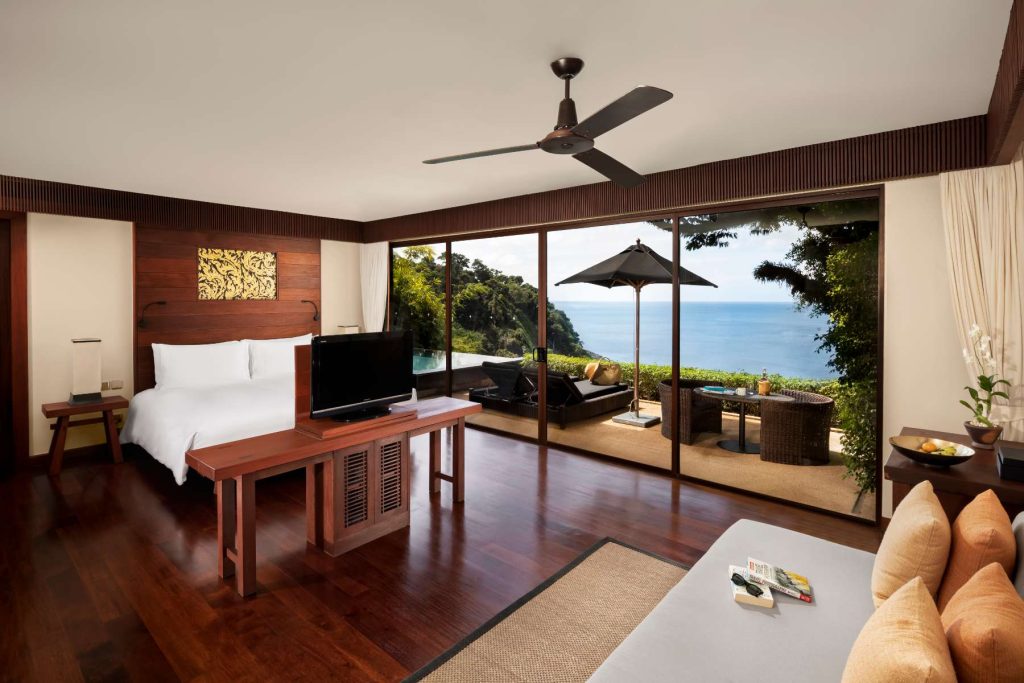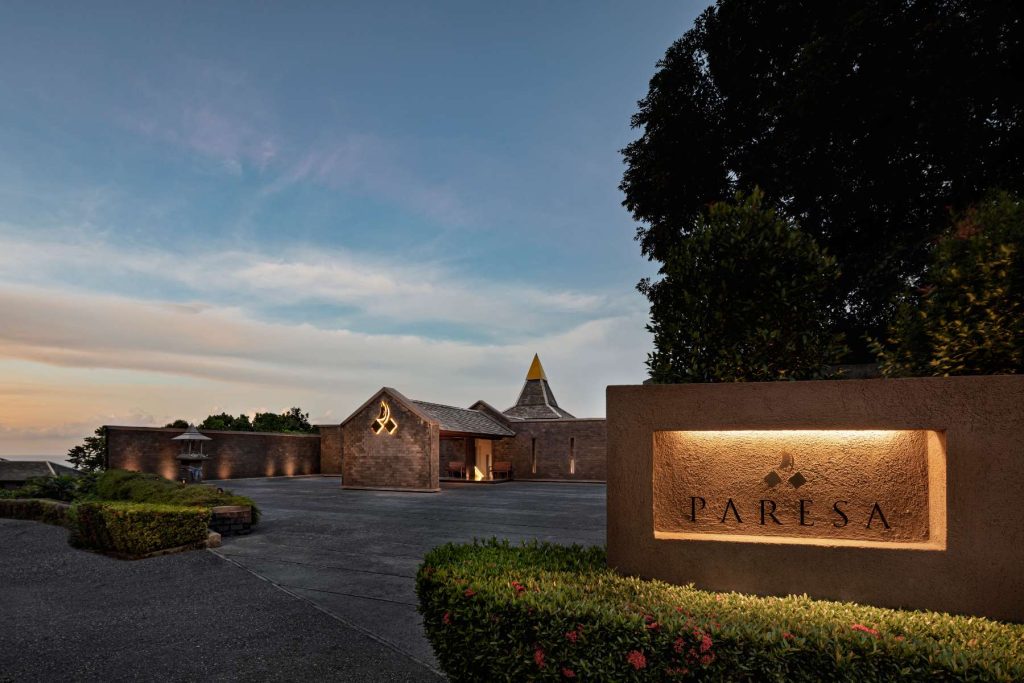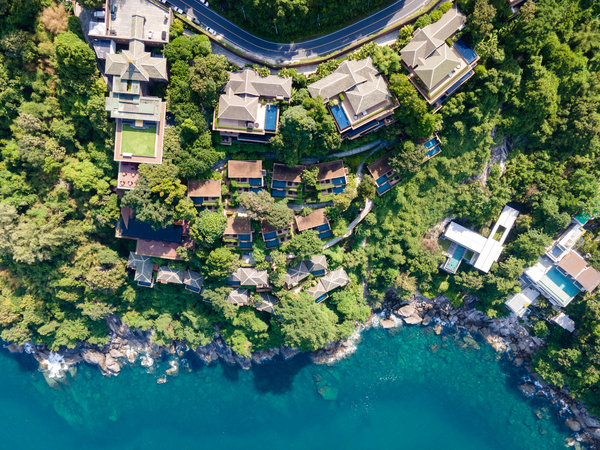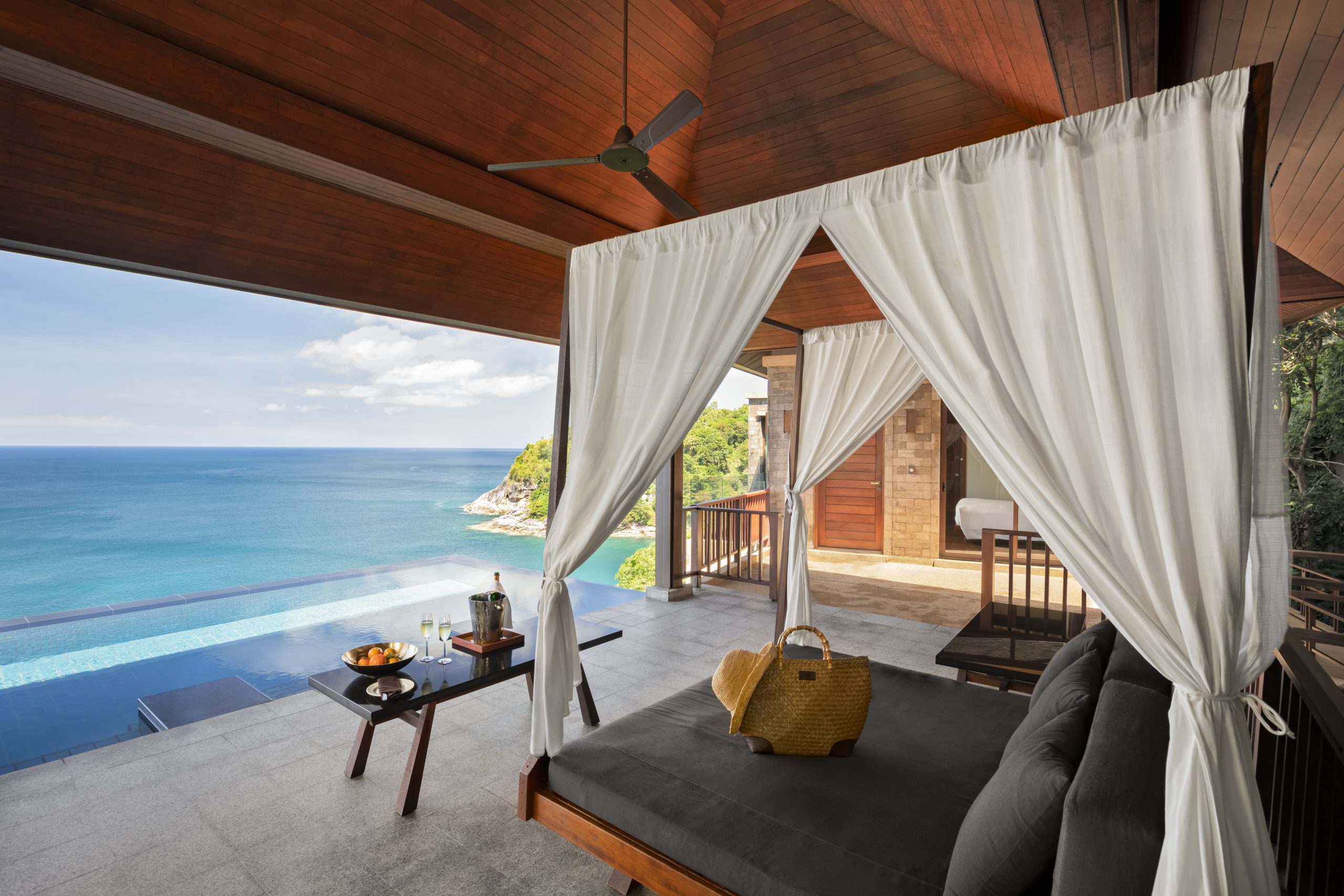We speak to general manager Anthony Dupont to learn about the thought and effort that has gone into designing and building a luxurious coastal retreat with an ethos of sustainability.

Anthony, what inspired the design theme of Paresa Resort? What was your design objective?
From the onset, the objective in the planning and design of our villas was clear – we had the ambition to create the perfect luxurious retreat, offering guests a secluded and private haven of relaxation and indulgence. Much thought was given to the architecture and the choice of decor, design, and furnishings, with attention given as to how best to use natural light and also space to create feelings of calm and serenity. It was also important to reflect the design and aesthetics of this region of Thailand to provide an authentic experience for guests.
We enlisted the help of Bangkok-based UKD Architects to help us achieve this. Each villa has been designed to create a spacious and serene space for our guests. The high pavilion-style ceilings are typical of Southern Thailand and not only reflect local design and craftsmanship but also contribute to the sense of space and light we were looking to create. The walls are a soothing off-white hue that promotes a sense of peace. When designing the layout of the villas, we looked to create a seamless flow so there is a feeling of openness from the calming and relaxing bedrooms through into the open plan main interior, ultimately opening out on the verandah to the stunning views across the Andaman Sea.
In keeping with the aesthetics of the local region, this light and airiness has been offset with rich timber finishes, produced from locally hewn and sustainable Thai forests, to complement the décor and give a sense of luxury to every villa’s interior. We have paid tribute to the region’s heritage by combining rich traditional Thai teak floors with authentic local Thai and Chinese furnishings, while the bathrooms are adorned with traditional Phuket batik works.
The artwork has been carefully curated to include a selection of unique pieces including the golden angels on black backgrounds honouring the name Paresa which means ‘Heaven of all Heavens’

What efforts have been made to create spaces that encourage mindfulness, meditation, and wellness?
While all the villas have been designed to encourage rest, calm and relaxation, we have dedicated spaces where guests can indulge in wellness practices. The Thai-inspired Paresa Spa consists of five treatment rooms where guests can indulge in relaxing treatments inspired by ancient Thai healing traditions and incorporating natural local ingredients.

The design of the Paresa Resort makes the most of the forested local environment. How does the architectural design of your property embrace nature?
The lush forests surrounding the resort are integral to the tropical hillside paradise we wanted to create, inspired by and immersed in nature. Much of the resort has been inspired by Frank Lloyd Wright’s Organic Architecture philosophy, combining luxury while respecting the surrounding environment – we work hard to protect the local flora and blend with our natural surroundings. Our guests love the lush, tropical environment we have created here so we have protected as many trees as possible. We even downsized the original scope of the resort and the number of villas as we were concerned about the impact on the forest and trees around us. And, of course, at the heart of the resort stands a majestic ancient Banyan tree which epitomizes our ethos of combining luxury and indulgence with the natural beauty of our surroundings.

How have you incorporated sustainable and eco-friendly practices into your property?
Paresa is committed to running a sustainable operation and to the plastic-free ‘Phuket Pledge’ future. This agreement is dedicated to reducing, reusing, and recycling single-use plastic in Phuket, with the aim of eliminating it in all hotels and resorts. We are supporting this with a youth community education programme to ensure grassroots awareness of the critical problems surrounding plastic usage on the island.
We endeavour to making more sustainable operational choices every year. As part of our drive towards a plastic-free environment, we encourage all guests to bring their own personal care products, such as toothbrushes and combs. In the rooms, disposable plastic bottles have been replaced with refillable pumps. We have eliminated plastic water bottles and invested in our own water-producing plant to treat, purify, and mineralise all our drinking water. We have stopped using plastic straws and are working with our food suppliers who now deliver fresh produce in reusable containers, not plastic bags.
A composting site has been built where organic waste is deposited, contributing to a rich and fertile compost. Wastewater from the on-site earthworm farm also serves as a nutrient-rich fertilizer for the gardens.
From our wastewater treatment plant to recycling as much rubbish as possible, our staff are encouraged to find new ways to protect our guests’ experience and the resort. We also welcome and encourage suggestions from our guests to help us achieve our goal.
For our efforts, we are delighted to say we have received a STAR Sustainable Tourism Award which celebrates the efforts made by tourism businesses to be more sustainable and help to protect their natural and cultural heritage.

Do you support any local community initiatives?
Paresa supports the Good Shepherd Phuket Town, a local charity that champions various community projects that assist, educate, and house disadvantaged and orphaned children. The hand soap used in the rooms for example, supports the charity, and we donate toys, clothing, and supplies.
We are proud to say our sustainability efforts and support of the local community have been recognised in the Responsible Thailand Awards.

